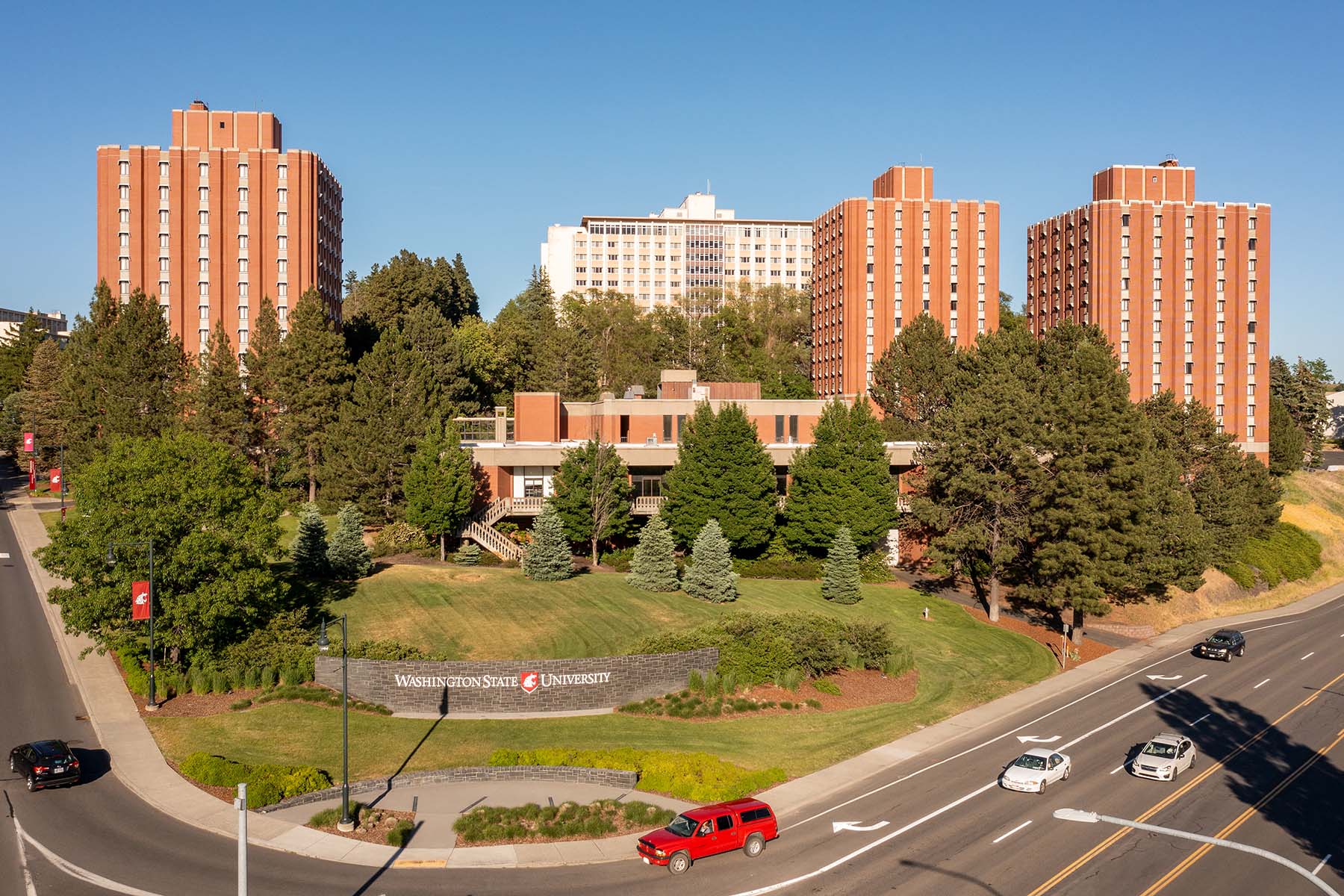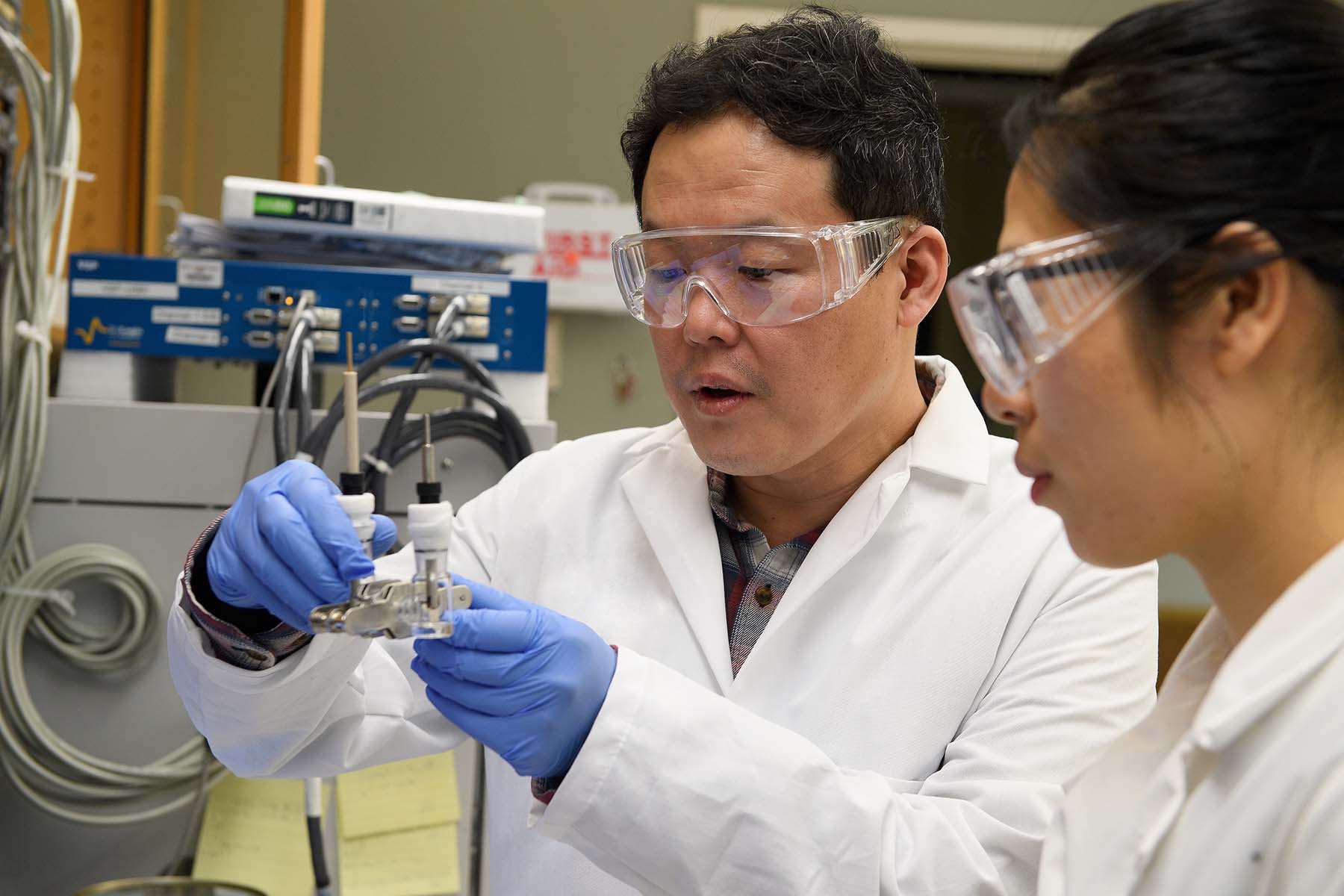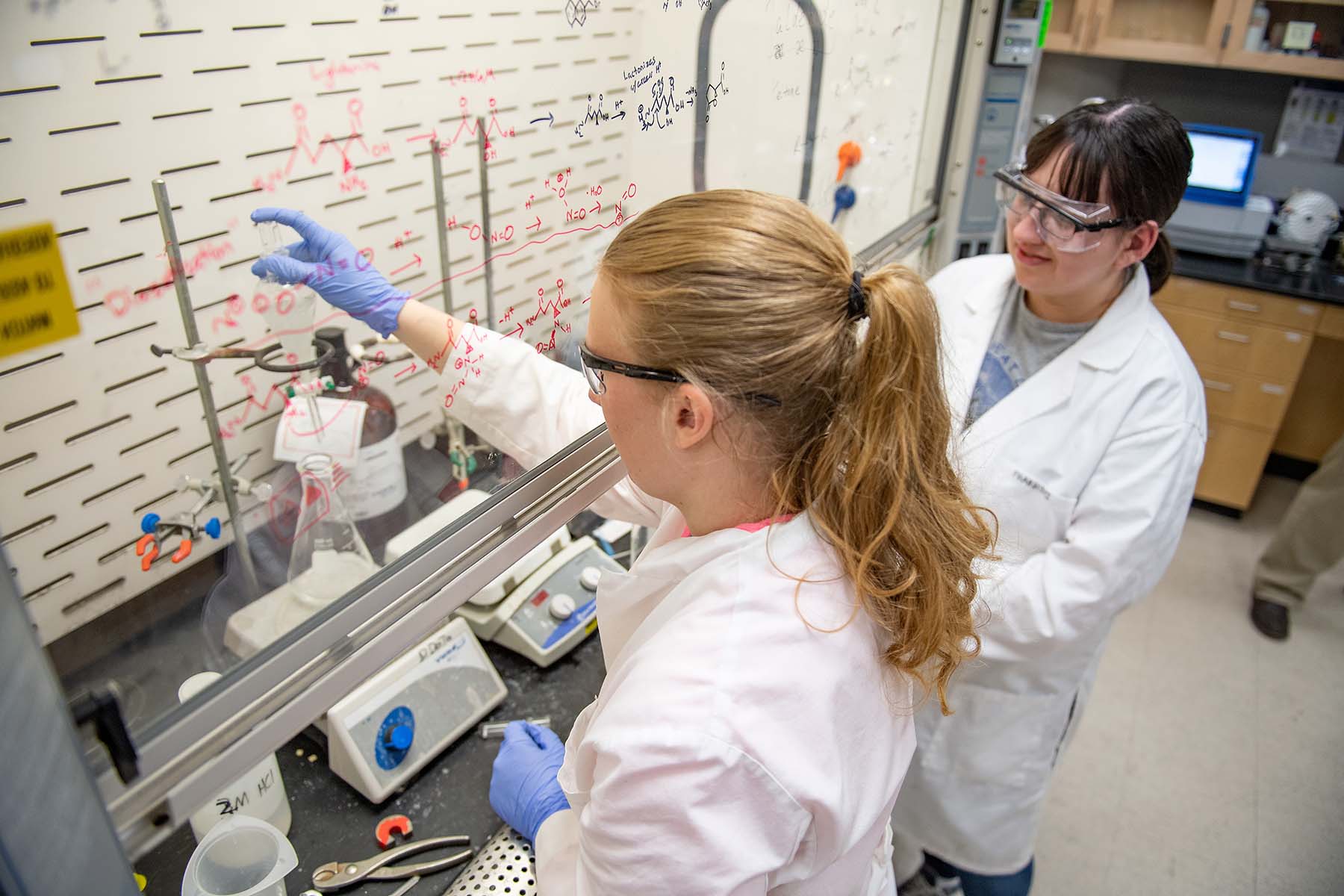Draft Agenda
Subject to Change
All times are presented in the host university’s local time zone.
Tuesday, September 13, 2022
1:00pm - 1:30pm
Opening Session
Conference Opening & Welcome Remarks
Additional Session Locations
1:30pm - 1:35pm
Lightning Talk
Winning at Cyber
Executive Summary
Many people see conflict in cyberspace as an "arms race," where each side continually improves its offenses and defenses, conflict never ends, and no one ever wins. Dr. Launchbury will describe how, through the use of mathematics-based development and assurance technologies, it is possible to create provably safe systems and effectively break this conflict spiral.
Speaker
Dr. John Launchbury, Chief Scientist, Galois & Founder and Chief Technical Officer, Tangram Flex
Additional Session Locations
1:35pm - 2:20pm
Portfolio Brief
Trustworthy AI for Adversarial Environments
Executive Summary
AI/ML is providing significant benefit in a wide range of application domains, but also provides adversaries with a new attack surface. DARPA's research in Trustworthy AI for Adversarial Environments is developing AI/ML technologies and systems that can be trusted to perform as expected despite the efforts of sophisticated adversaries.
Additional Session Locations
2:20pm - 2:30pm
Demo
Semantic Forensics (SemaFor)
Executive Summary
Deepfakes use artificial intelligence to create realistic, synthetic media which can make it appear as if someone has said or done something that did not actually happen. DARPA's Semantic Forensics (SemaFor) program is creating novel semantic algorithms to defend against large-scale, automated disinformation attacks, where deepfakes can play a role. This demonstration will discuss the current state of the art in deepfakes and highlight a recent capability, developed under SemaFor, for authenticating videos that purport to be of a specific individual, for example former U.S. president Barack Obama or the current president of Ukraine, Volodymyr Zelenskyy.
Speaker
Dr. Matt Turek, Deputy Director, DARPA Information Innovation Office (I2O)
Additional Session Locations
2:30pm - 3:00pm
Break
Additional Session Locations
3:00pm - 3:05pm
Lightning Talk
Quantum-MEMS
Executive Summary
The marrying of MEMS to quantum sensing and computation will enable quantum computers to scale to heretofore unsolvable problems, while supporting new classes of highly miniature, low-cost sensors for military and everyday uses. Qubits are incredibly powerful, but their state information is fleeting. This talk will discuss implications of combining technology found in everyday consumer electronics, microelectromechanical systems (MEMS), with qubits to enable quantum sensing and teleportation.
Speakers
Dr. Amir Safavi-Naeini, Associate Professor of Applied Physics and a member of Ginzton Lab, Stanford University
Additional Session Locations
3:05pm - 3:50pm
Tech Panel
Will the Future of Computing be Digital?
Executive Summary
Over the past twenty-five years, new technologies have emerged to compete with classical digital computing. At their core, these nascent technologies seek to reduce the time and energy that traditional architectures consume moving and processing data. Going forward, the exact nature of advanced computing is likely to be dependent on the application domain addressed. This session will discuss the domain-specific performance measures that will define advanced computing in the future. The panel will explore the key challenges to meeting future computing goals from the perspective of a diverse set of technologies (e.g., conventional digital, quantum, analog, stochastic, molecular).
Speakers
Dr. Bryan Jacobs, Program Manager, DARPA Microsystems Technology Office (MTO) (Moderator)
Dr. Jae-sun Seo, Associate Professor, Arizona State University School of Electrical, Computer and Energy Engineering
Additional Session Locations
3:50pm - 4:00pm
Demo
Domain-Specific System on Chip (DSSoC)
Executive Summary
IBM will demonstrate their EPOCHS technology (developed under DARPA’s DSSoC program) to accelerate relevant applications that must execute simultaneously for connected autonomous vehicles (CAVs). The first one shows CAVs collaborating on the road to avoid obstacles and hazards, while key functionalities are accelerated. The second demonstration shows how EPOCHS technology can support natural language processing to enable human-car interaction.
Additional Session Locations
4:00pm - 4:30pm
Break
Additional Session Locations
4:30pm - 4:35pm
Lightning Talk
Power Everywhere
Executive Summary
AI will enable a whole new class of autonomous capabilities and vehicles. However, there is a fundamental and practical problem that will hinder broader adoption: power. Whether it is power for a sensor emplacement to defend the homeland, or a swarm that can operate indefinitely, power limits the adoption of future capabilities.
Additional Session Locations
4:35pm - 5:20pm
Portfolio Brief
Redefining Future Platforms
Executive Summary
The mission of the Tactical Technology Office is to redefine access and deliver effects to every physical domain in the battlespace: space, air, ground, sea, and undersea in support of national security policy. This includes both platforms as well as the enabling support elements for delivering effects, such as unit level autonomy or human-machine collaboration. This presentation provides an overview of TTO's programs and potential opportunities for the future.
Additional Session Locations
5:20pm - 5:30pm
Closing Session
Closing Remarks
Additional Session Locations
5:30pm - 7:00pm
Networking Reception
Additional Session Locations
Wednesday, September 14, 2022
7:30am - 8:45am
Continental Breakfast
Additional Session Locations
8:45am - 8:50am
Opening Session
Opening Remarks
Additional Session Locations
8:50am - 8:55am
Keynote Address
Chairman Adam Smith, House Armed Services Committee
Additional Session Locations
8:55am - 9:00am
Lightning Talk
Enabling Next Generation Communications
Additional Session Locations
9:00am - 9:45am
Tech Panel
The Human Domain
Executive Summary
The "Global Trends 2040 - A More Contested World" assessment described the critical need to understand, assess and address the complex, multi-scale aspects of individuals, societies, and international communities that act as forcing functions for decisions, division, and conflict relative to national security. We tend to address national security challenges with technology solutions without explicitly considering this context because the complexity of this landscape is vast and incredibly challenging to understand in a tractable way. This session will focus on providing the context regarding the influence of emerging social, behavioral, and societal changes have on stability and security around the world. We will touch on global trends and emerging technologies, but also ask questions/discuss what we do and don't know, and what areas may be valuable to address. The goal is to provide perspectives from those outside of DARPA.
Speakers
Dr. David Danks, Professor of Data Science and Philosophy, University of California, San Diego (Moderator)
Dr. James Evans, Professor, Knowledge Lab, University of Chicago Department of Sociology
Additional Session Locations
9:45am - 10:30am
University Host Session
Resilience to Performance Deficits from Sleep Loss
Executive Summary
Sleep loss is ubiquitous in military operations, which jeopardizes the effectiveness and safety of service members and presents a threat to mission success. However, some individuals are naturally resilient to performance deficits from sleep loss. Discovering the underlying mechanisms and finding out how to confer a degree of resilience to those who are more vulnerable to sleep loss is a high priority for military and civilian settings alike. This session covers the main challenges stakeholders face in understanding and effecting resilience to performance deficits from sleep loss and discusses how these challenges could be overcome in future R&D efforts.
Speaker
Dr. Hans Van Dongen, Professor and Director, Sleep and Performance Research Center, Washington State University
Additional Session Locations
10:30am - 11:00am
Break
Additional Session Locations
11:00am - 11:10am
Demo
Secure Handhelds on Assured Resilient Networks at the Tactical Edge (SHARE)
Executive Summary
Demo of SHARE highlighting trusted group communication and resilient data sharing in the presence of disruption. Audience will observe the benefits of SHARE's capabilities through the Tactical Assault Kit (TAK) user interface.
Additional Session Locations
11:10am - 11:15am
Lightning Talk
U.S. Navy Unmanned Underwater Vehicles (UUVs) - Current and Future
Executive Summary
A macro-level overview of current and planned U.S. Navy UUV programs.
Speaker
CAPT Jason Weed, Commodore, Navy Unmanned Undersea Vehicles Squadron ONE (UUVRON-1)
Additional Session Locations
11:15am - 12:00pm
Tech Panel
Systems of Autonomy
Executive Summary
This panel will describe the importance of autonomous systems to the DoD and examine the barriers, technical and otherwise, specific to the successful fielding operational use of autonomous systems and platforms.
Speakers
Dr. Phil Root, Director, DARPA Strategic Technology Office (STO) (Moderator)
Mr. Nic Radford, Founder, President and Chief Executive Officer, Nauticus Robotics
Additional Session Locations
12:00pm - 2:00pm
Networking Lunch
Additional Session Locations
2:00pm - 2:05pm
University Host Session
Sustainable Secure Resilient Power Grids
Executive Summary
Power grids play a crucial role in meeting the energy needs of the society. The planning and operation of power grids are becoming increasingly challenging as we transition to the sustainable and resilient power grids of the future without compromising on the affordability and reliability that the power infrastructure is known for. Moreover, being the backbone of the national energy economy, the power grids face constant cyberthreats from adversarial agents that need to be detected and mitigated. The talk will summarize research in Energy Systems Innovation Center and Advanced Grid Institute on how to design and operate the future power grids in a reliable, resilient, secure, and economical fashion.
Additional Session Locations
2:05pm - 2:50pm
Tech Panel
Understanding the Operational Environment
Executive Summary
Advancements in land and sea detection modalities provide new capabilities for situational awareness and threat mitigation in different operational environments. This session will highlight the current challenge and opportunity spaces created from acquiring data collected across multiple domains and how that data can best be utilized to maintain vigilance.
Speakers
CAPT Jason Weed, Commodore, Navy Unmanned Undersea Vehicles Squadron ONE (UUVRON-1)
COL Trent Mills, Special Assistant to the DARPA Director / U.S. Army Operational Liaison
Additional Session Locations
2:50pm - 2:55pm
Keynote Address
Admiral Samuel Paparo, Commander, U.S. Pacific Fleet
Additional Session Locations
2:55pm - 3:15pm
Tech Discussion
Vulnerabilities in our Military and National Supply Chains and Potential Technological Solutions
Executive Summary
Vulnerabilities in our Military and National Supply Chains and Potential Technological Solutions
Additional Session Locations
3:15pm - 3:45pm
Break
Additional Session Locations
3:45pm - 4:00pm
Keynote Address
Vice Admiral Jon Hill, Director, Missile Defense Agency
Additional Session Locations
4:00pm - 4:45pm
Tech Panel
Hardening Supply Networks for the Future
Executive Summary
The global supply chain is a complex and dynamic system that is vulnerable to disruptions, such as extreme weather events, supplier disruptions, cyber attacks, and pandemics. This session will discuss how new paradigms can play a role in ensuring resilient, trusted, and secure access to materials and products that are critical for DoD needs.
Speakers
Dr. Linda Chrisey, Program Manager, DARPA Biological Technologies Office (BTO) (Moderator)
Dr. Carl McCants, Special Assistant to the DARPA Director, DARPA Microsystems Technology Office (MTO)
Mr. Wallace Patterson, Senior Program Manager, Air Force Research Laboratory’s Materials and Manufacturing Directorate (AFRL/RX)
Additional Session Locations
4:45pm - 5:15pm
Closing Session
Closing Remarks
Additional Session Locations







